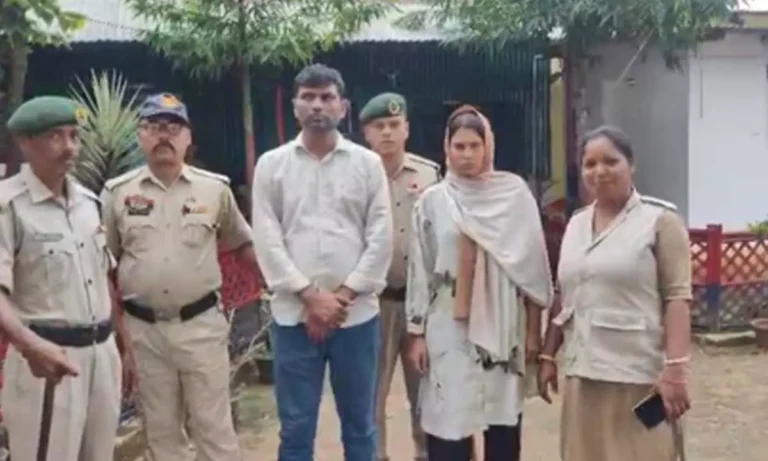AAP MP Sanjay Singh Moves Suspension of Business Notice to Discuss Manipur Crisis
Summary
AAP MP Sanjay Singh has taken a proactive stance in addressing the ongoing crisis in Manipur. In the Rajya Sabha, he moved a suspension of business notice to prioritize discussions about the ethnic violence plaguing the state. By urging the House to focus on this critical issue, Singh aims to bring the national spotlight on the plight of Manipur’s people. His move underlines the urgency of addressing the state’s situation and emphasizes the need for parliamentary intervention in resolving the conflict.
The Full Story
Manipur’s Crisis: A Grim Reality
Manipur, known for its vibrant culture and scenic beauty, has been overshadowed by an alarming crisis over the past months. The ethnic violence, primarily between the Kuki and Meitei communities, has escalated to a point where lives, homes, and trust have been irreparably damaged. This unrest has raised serious questions about governance and the role of central and state authorities in ensuring peace.
Sanjay Singh’s Call for Action
On December 13, AAP MP Sanjay Singh made headlines by moving a suspension of business notice in the Rajya Sabha. His objective? To demand an urgent and focused discussion on Manipur’s deteriorating situation. Singh’s notice reflects a growing sentiment among opposition leaders that the ongoing violence needs immediate national attention, transcending political differences.
What Does a Suspension of Business Notice Mean?
In parliamentary procedures, a suspension of business notice is a formal request to halt the scheduled agenda and prioritize a pressing issue. It’s a tool often used by MPs to address urgent matters affecting the nation. By using this mechanism, Singh emphasized the need to put Manipur’s crisis at the forefront of the legislative agenda.
Opposition’s Persistent Demand for Accountability
Singh’s move is not an isolated event but part of a larger opposition strategy. Various parties, including the Congress, Trinamool Congress, and now the Aam Aadmi Party, have repeatedly called for comprehensive debates on Manipur. These demands stem from a perceived lack of transparency and inadequate responses from the central government.
Why Manipur’s Crisis Demands Attention
Ethnic clashes in Manipur are not just local skirmishes; they are symptomatic of deep-rooted social and political tensions. The crisis has displaced thousands, disrupted livelihoods, and created an environment of fear and mistrust. Despite several appeals for intervention, many believe that the government’s response has been slow and insufficient.
Moreover, the situation in Manipur highlights broader issues of governance in India’s northeastern states, where developmental challenges and ethnic complexities often intersect.
The Role of the Aam Aadmi Party
While AAP is primarily known for its governance in Delhi and Punjab, its involvement in the Manipur issue reflects a growing ambition to establish itself as a national political player. By addressing national concerns like Manipur, AAP aims to showcase its commitment to resolving issues beyond its immediate strongholds.
Government’s Stand on the Issue
The ruling BJP has consistently defended its actions, citing efforts to restore peace and normalcy in Manipur. Union ministers have visited the state, and relief measures have been announced. However, critics argue that these steps are insufficient given the magnitude of the crisis.
The Broader Political Implications
The Manipur violence has become a rallying point for opposition parties to challenge the BJP-led government’s governance model. It’s not just about Manipur; it’s about setting a narrative of accountability and action. For AAP, this is an opportunity to align itself with the opposition’s collective effort while carving out a distinct identity as a party that takes bold stands on national issues.
The Path Forward
To address Manipur’s crisis effectively, a multi-pronged approach is necessary:
- Immediate Relief: Provide adequate resources for displaced individuals and families.
- Dialogue: Initiate peace talks between conflicting communities to rebuild trust.
- Long-term Policies: Address the underlying causes of ethnic tensions through socio-economic development and equitable governance.
- Parliamentary Oversight: Ensure consistent parliamentary discussions to keep the issue in focus and track progress.
Manipur’s situation is a test of India’s commitment to inclusivity and peace. While political debates are essential, they must translate into actionable outcomes.
FAQs
- What is the primary cause of the Manipur crisis?
The crisis stems from ethnic tensions between the Kuki and Meitei communities, exacerbated by political and land disputes. - What did Sanjay Singh aim to achieve with his suspension of business notice?
Singh wanted to prioritize discussions on Manipur’s crisis in the Rajya Sabha, bringing national attention to the issue. - Has the government taken any steps to resolve the crisis?
Yes, the government has initiated relief measures and sent ministers to assess the situation, though critics argue these steps are inadequate. - Why is the opposition focusing on Manipur?
The opposition believes the central government’s response to Manipur’s violence has been lackluster, making it a critical issue for accountability. - What role can AAP play in addressing national issues like this?
AAP’s involvement demonstrates its commitment to addressing national concerns, positioning it as a serious political contender beyond state-level politics.


